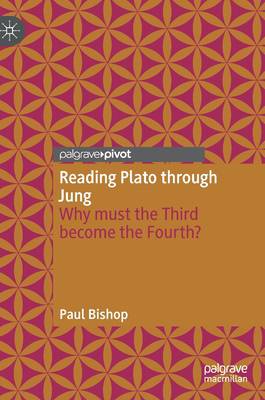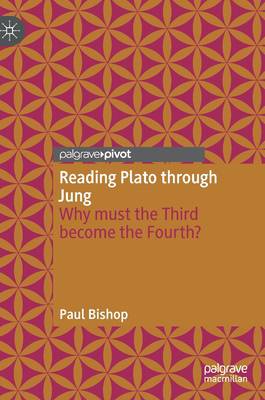
- Afhalen na 1 uur in een winkel met voorraad
- Gratis thuislevering in België vanaf € 30
- Ruim aanbod met 7 miljoen producten
- Afhalen na 1 uur in een winkel met voorraad
- Gratis thuislevering in België vanaf € 30
- Ruim aanbod met 7 miljoen producten
Zoeken
€ 52,95
+ 105 punten
Omschrijving
This book examines the Jungian imperative that the Third must become the Fourth through the lens of Carl Jung's complex reception of Plato. While in psychoanalytic discourse the Third is typically viewed as an agent that brings about healing, the author highlights that, in the case of Jung, an early emphasis on the Third as the "transcendent function" gave way to an increasing insistence on the importance of the Fourth. And yet, he asks, why must "the Third become the Fourth"?
Paul Bishop begins with a survey of work on Jung's relation to Plato, before turning to Jung's readings of the Timaeus and Black Books, as well as Goethe's Faust II and Nietzsche's Zarathustra. He proceeds to unpick Jung's statements on the Third and the Fourth though a compelling analysis of how Jung draws upon religious and alchemical traditions, Pythagorean numerology, his own dream-like experiences and Plato's cosmology. This book will appeal to practitioners and to scholars working in the history of ideas, psychoanalysis, philosophy, and psychoanalytic theory.
Paul Bishop begins with a survey of work on Jung's relation to Plato, before turning to Jung's readings of the Timaeus and Black Books, as well as Goethe's Faust II and Nietzsche's Zarathustra. He proceeds to unpick Jung's statements on the Third and the Fourth though a compelling analysis of how Jung draws upon religious and alchemical traditions, Pythagorean numerology, his own dream-like experiences and Plato's cosmology. This book will appeal to practitioners and to scholars working in the history of ideas, psychoanalysis, philosophy, and psychoanalytic theory.
Specificaties
Betrokkenen
- Auteur(s):
- Uitgeverij:
Inhoud
- Aantal bladzijden:
- 155
- Taal:
- Engels
Eigenschappen
- Productcode (EAN):
- 9783031168116
- Verschijningsdatum:
- 21/01/2023
- Uitvoering:
- Hardcover
- Formaat:
- Genaaid
- Afmetingen:
- 148 mm x 210 mm
- Gewicht:
- 353 g

Alleen bij Standaard Boekhandel
+ 105 punten op je klantenkaart van Standaard Boekhandel
Beoordelingen
We publiceren alleen reviews die voldoen aan de voorwaarden voor reviews. Bekijk onze voorwaarden voor reviews.











